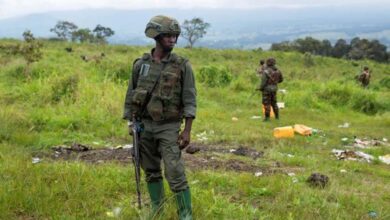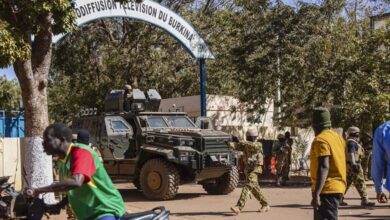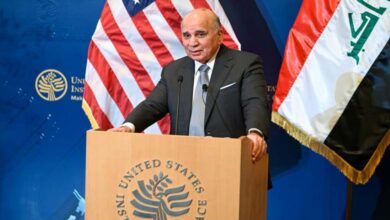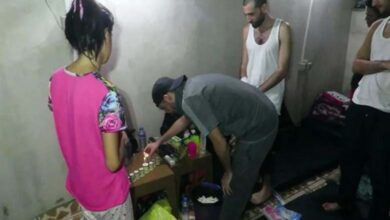Black Monday in Nigeria: Stay Home or Risk Death
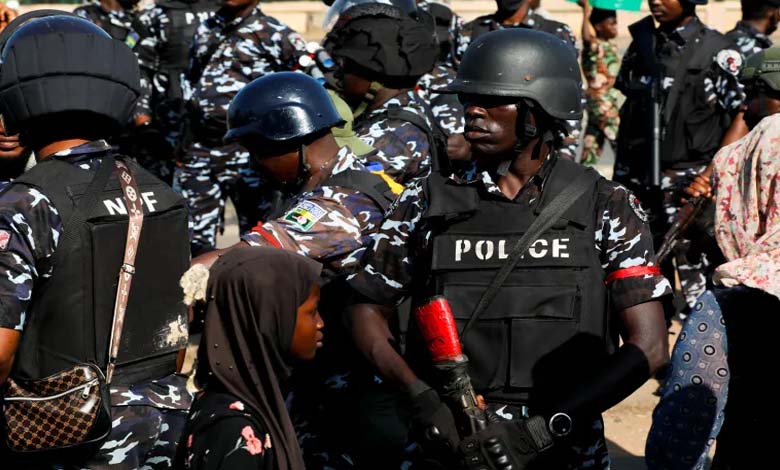
In southeastern Nigeria, “Black Monday” has become a weekly ritual of bloodshed, where simply stepping outside can cost you your life.
According to a new report from an intelligence consultancy, an order issued by the banned separatist group Indigenous People of Biafra (IPOB) to remain indoors has led to over 700 deaths in the region over the past four years.
-
Alarming Security Deterioration in Nigeria: Civilians Trapped Between Boko Haram and ISIS
-
“Borno Attack” in Nigeria: A Bloody Confrontation and Heavy Losses for Boko Haram
Nigerian authorities have designated IPOB—a group advocating for the secession of the predominantly Igbo southeastern region—as a terrorist organization.
The report by SBM Intelligence, cited by Reuters, states that the deaths were the result of civilians being killed for defying the weekly “stay-at-home” order—enforced every Monday and on certain other days—as well as clashes between IPOB and Nigerian security forces.
The report highlights that IPOB’s enforcement tactics, including arson, looting, and targeted assassinations, have created an atmosphere of fear.
-
Nigeria Suffered the Most from ISIS Terrorism in 2022
-
The Emergence of a New Jihadist Group Exacerbates Nigeria’s Security Woes
Although compliance with the stay-at-home directive was reportedly as high as 82.61% in 2021, recent surveys show that actual support has dropped significantly to 29%, with many obeying out of fear rather than genuine allegiance.
A spokesperson for the group denied responsibility for the killings, telling Reuters: “Those behind the killings are kidnappers and criminals hired by the government to extort and demonize IPOB.”
The Nigerian government has not responded to requests for comment.
-
Food as a Weapon: How Jihadist Groups Use Famine to Expand Their Power in Africa
-
The African Sahel: The deadliest hotspot of violence on the continent for the fourth consecutive year
❓ What Are the “Stay-at-Home” Protests?
IPOB initiated the stay-at-home campaign in August 2021 across five southeastern Nigerian states, using it as a pressure tactic to demand the release of its leader, Nnamdi Kanu, who is currently on trial in Abuja for terrorism-related charges.
The group suspended the weekly protest days later, citing a “direct order” from Kanu—detained since 2021—and resumed the practice only on days he appeared in court.
However, the report states that armed factions aligned with IPOB, as well as splinter groups, have continued to enforce the weekly shutdown, launching attacks on government facilities and individuals suspected of government loyalty.
-
Escalating Terrorism in Niger: A Security Crisis Threatening Regional Stability
-
Increase in terrorist organization crimes since the beginning of 2025… What are the details?
Despite IPOB’s attempts to distance itself from the violence, Nigerian police have accused the group of involvement in several incidents, including a 2021 prison break and the killing of over 30 travelers earlier this month.
IPOB has denied responsibility for both attacks.
According to SBM Intelligence, beyond the human toll, the ongoing shutdowns—every Monday and during Kanu’s court appearances—have crippled economic activity in southeastern Nigeria, causing losses exceeding 7.6 trillion naira ($4.79 billion).
Historically, the Biafra region was engulfed in a brutal civil war in the late 1960s, resulting in over one million deaths.




